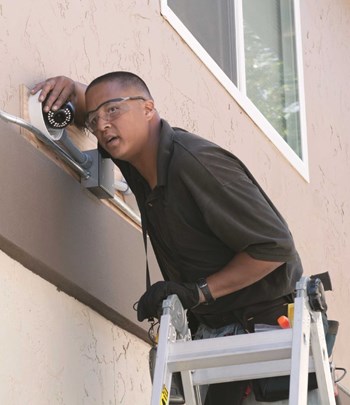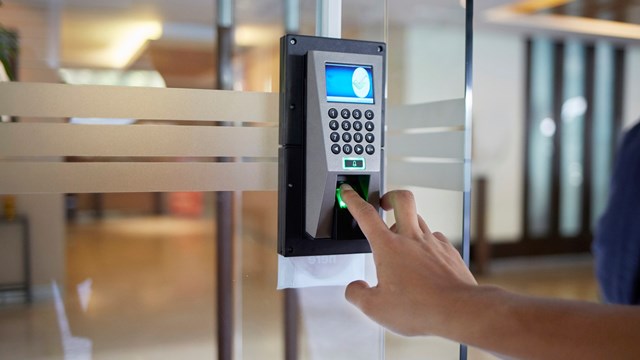
For most people, nothing is more important than knowing that they and their families are safe and secure in the place they call home. Boards, management and security firms all must work together seamlessly and cohesively to create that safe environment without making a building or community feel like a citadel. It can be a delicate balancing act, but with the right approach, it can be done.
Beginning the Process
In most cases, the board and managers will shoulder the burden of finding the right security firm with which to work. Larger communities may even have a security committee that can make recommendations for the board. The security committee is beneficial in terms of reviewing and analyzing security issues for the community, but ultimately the final vendor decision should be made by the board and property manager.
Finding the right security partner can take time but it starts with research. “My suggestion would be to talk to the other local condominium boards and management companies,” says John Eastwood, vice president of Metroguard Security Services, Inc. in Fairfield, Connecticut. “The best way to find a good security company is through a referral, which will take some time and effort, but the other customers can tell you about the performance of the company and their experience with it.” Locating a security company may take some collaborative research. After locating a particular one, it is important to get in touch with them and see what kind of customer service and experience they offer, says Daniel Ryan, field operations manager at New England Security Group in Boston.
“Call the company. Did they answer their phone promptly and professionally? Or did you get a voice mail or no answer? If a company or security company does not answer their phones promptly or doesn’t answer at all, then this is your first sign that the company is likely going to be non-responsive to your needs. Security companies are in business 24/7/365. Office closed or voice mail is not an option. Was the person on the phone listening to your needs and willing to visit your property? Were they asking questions back? You have to do your homework—don’t always choose the company with the best price or rate. You get what you pay for,” he says.
Determining Your Needs
Every building and community is different, meaning they all have disparate and unique security needs. The best way to determine an effective plan for safety is to do a thorough assessment of those needs. The consultant will begin with speaking to the board and property management in order to get a feel for the environment and priorities of the community, says Jack Monahan, senior consultant at The Monahan Group, Inc. in Worcester, Massachusetts.
Consultants will also look at the crime statistics and history of security-related problems, sometimes collaborating with the local police department in order to obtain that data. Additional items that will be surveyed are gates, fences, lighting, front entrances and parking. An analysis of the history and landscape will aid the consultant in determining what existing security measures work and what needs to be improved upon, expanded or removed in order to provide the best possible plan. “You need to visit with the client and the site, assess their issues: is it vehicle break-ins, vandalism, trespassing, illegal dumping, parking enforcement, or is it to be proactive and preventive?” says Steven Cook, who is the vice president of operations at New England Security Group.
In addition, detailed conversations with board members, management and residents will help unearth any particular or ongoing issues. Doing a survey of the unit owners and tenants can help illuminate their experience as well as any security-related concerns they may have, says Eastwood.
When concerns and priorities are discovered, there is not just one way to address a safety or security problem. A good consultant will try to provide a list of several security choices for communities. For example, a security solution might be utilizing a security officer to patrol the area a couple times a day or have a permanent on-site guard 24/7. The key is to give the board and residents options, especially when budget is a determining factor.
The needs of the community will also vary, depending on the physical layout. A high-rise condominium in Boston will have different concerns than a gated HOA in Stamford, Connecticut. “A high, mid-rise unit would likely require a stationary guard in the lobby, where a more spread-out development could utilize the patrol service or require a patrol vehicle. In a building, the officer is acting as a concierge; they can be signing in and out guests and visitors or accepting packages. Where in the more spread-out development, the officer is tagging illegal parked vehicles and actively patrolling the property,” explains Daniel Mailhiot, the New England Security Group’s president.
Building the Best Plan
As with anything, the key to successfully building a strong security plan is information and communication. The more information available to the security firm—not just from boards and management but from residents, shop owners and business owners—the better able a security firm will be able to establish a history and patterns for that area and build a plan that is unique to those needs.
It is also important to build a plan that is flexible, one that can be altered as problems are resolved or continue to grow. Many security companies will sign one-year contracts for guards or patrols but fail to assess the circumstances on a monthly or quarterly basis, says Eastwood. “Consultants need to have the flexibility. During the course of the contract, you have to talk to the condo board and management company and ask what needs to be changed. Do we need to change the hours? Can we suspend the guard on site and use vehicular patrol? It should be based on needs analysis,” he explains.
Clients and firms need to work as well to make sure they are focused on the real needs. For example, a building might not need a new surveillance camera; they might simply need to ensure that someone is watching the videos each day. Many consultants detail situations in which crimes had taken place or were suspected but no one had watched the surveillance footage. Other times, communities had an incident but no one recorded or reported it. Without that information and without an accurate, recorded history of past incidents, it can be difficult, if not impossible, to understand patterns and ultimately the real needs of the building or association.
Dollars and Sense
Whether things are going well or there is room for improvement in the security situation, it is important to evaluate the relationship regularly. Monahan recommends that boards have their security measures and space evaluated annually to address any concerns with what works and what doesn’t work. It’s important, as well, to make appropriate changes to account for any environmental or structural changes that occurred in the community. Often security companies will provide these assessments free of charge.
In some cases, neighboring communities may decide to offset security costs by sharing services. “We see that when associations share the same management company, then you can work with the management company and one association can offset the other,” Eastwood says.
Cook adds, “We recommend to clients all the time that they partner up with a neighboring condo or development. With our proactive patrol units they can easily patrol both properties in a general area or vicinity and the boards can share the cost for the same service.”
While it may be tempting to go with the lowest cost vendor, Eastwood advises boards and managers not to make the decision simply based on finances alone. “What you get with lowest price, usually, is lowest performance. I'm not saying you have to get the top price for the top performance, but if you take the lowest price just because it’s the lowest price, they are not really interested in security,” he says.
It’s no easy job keeping individuals and families feeling safe and secure, but with the right preparation, evaluations and execution of plans, it can be done efficiently and well. And that will help everyone sleep a lot easier each night.
Liz Lent is a freelance writer and a frequent contributor to New England Condominium. Editorial Assistant Maggie Puniewska contributed to this article.






Leave a Comment